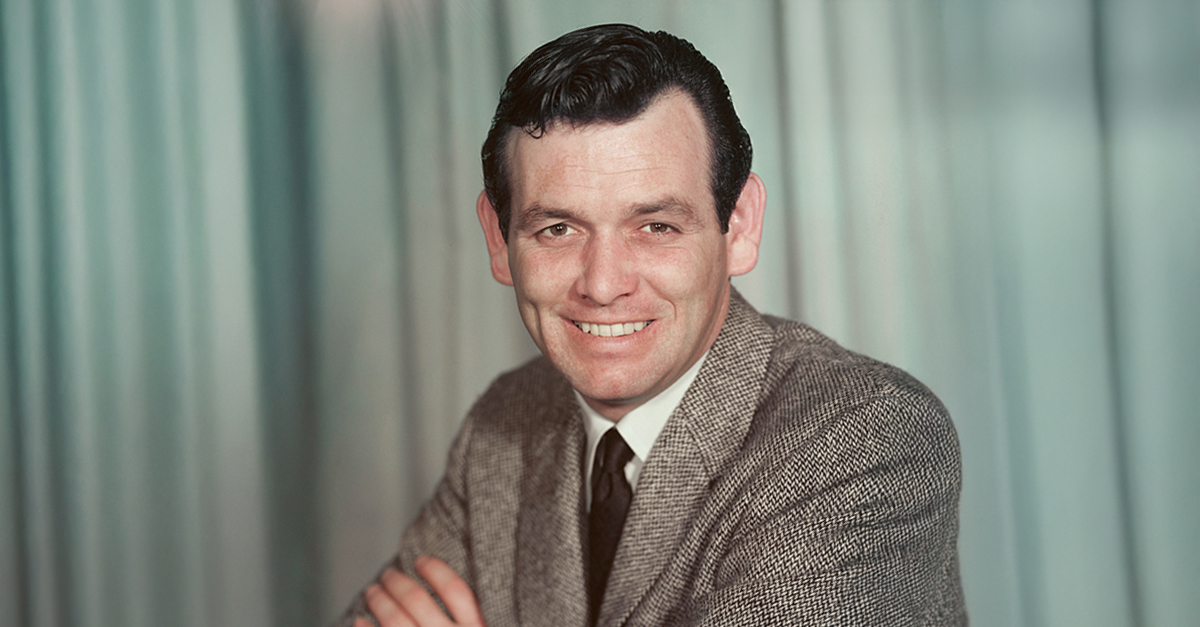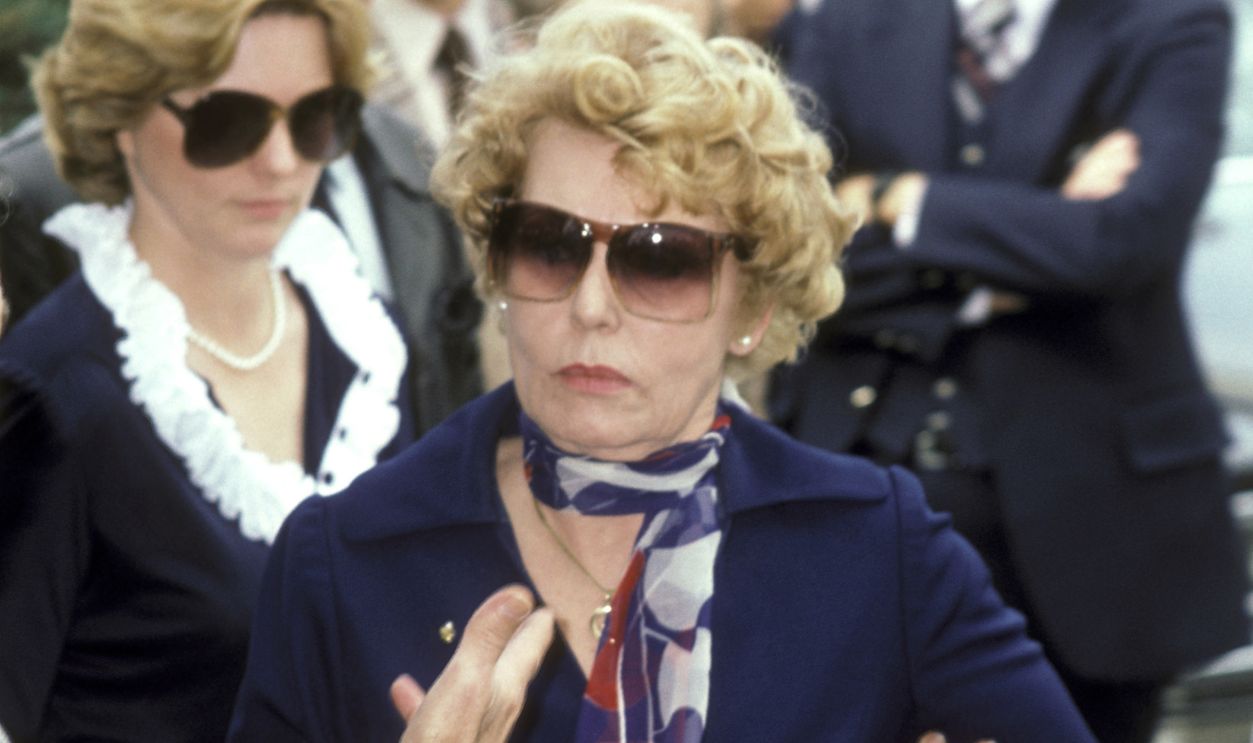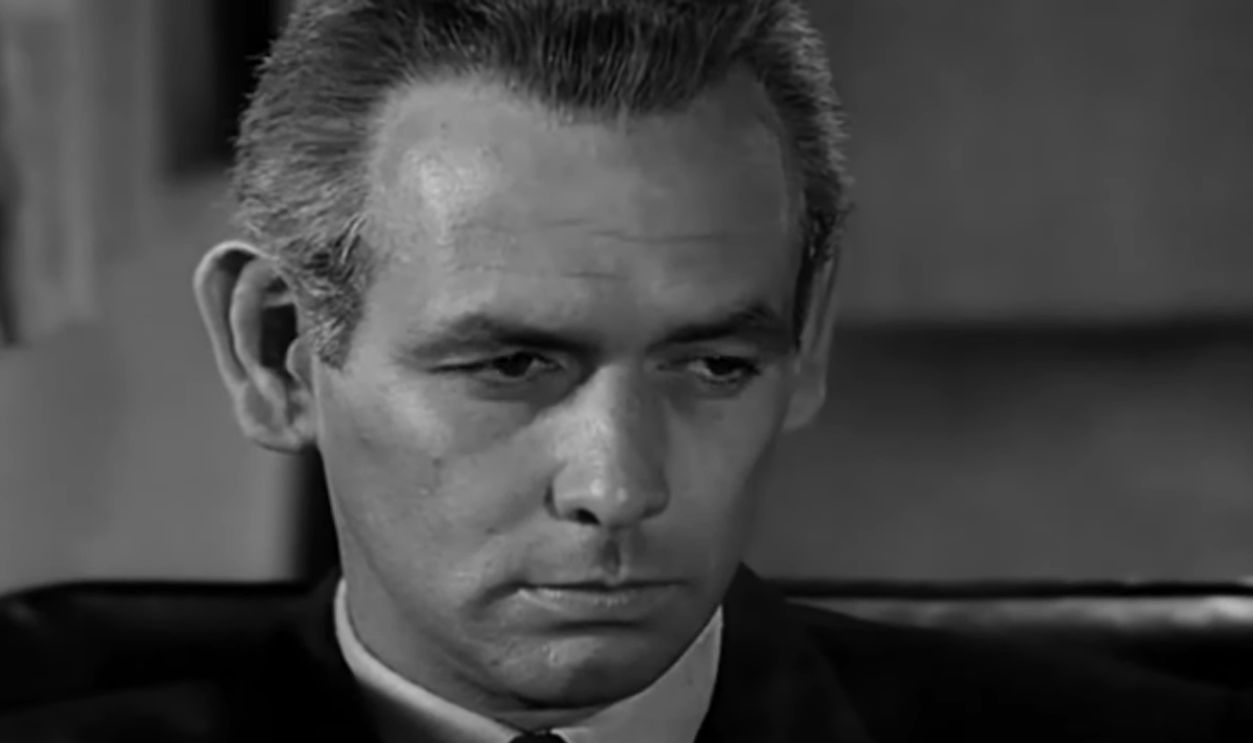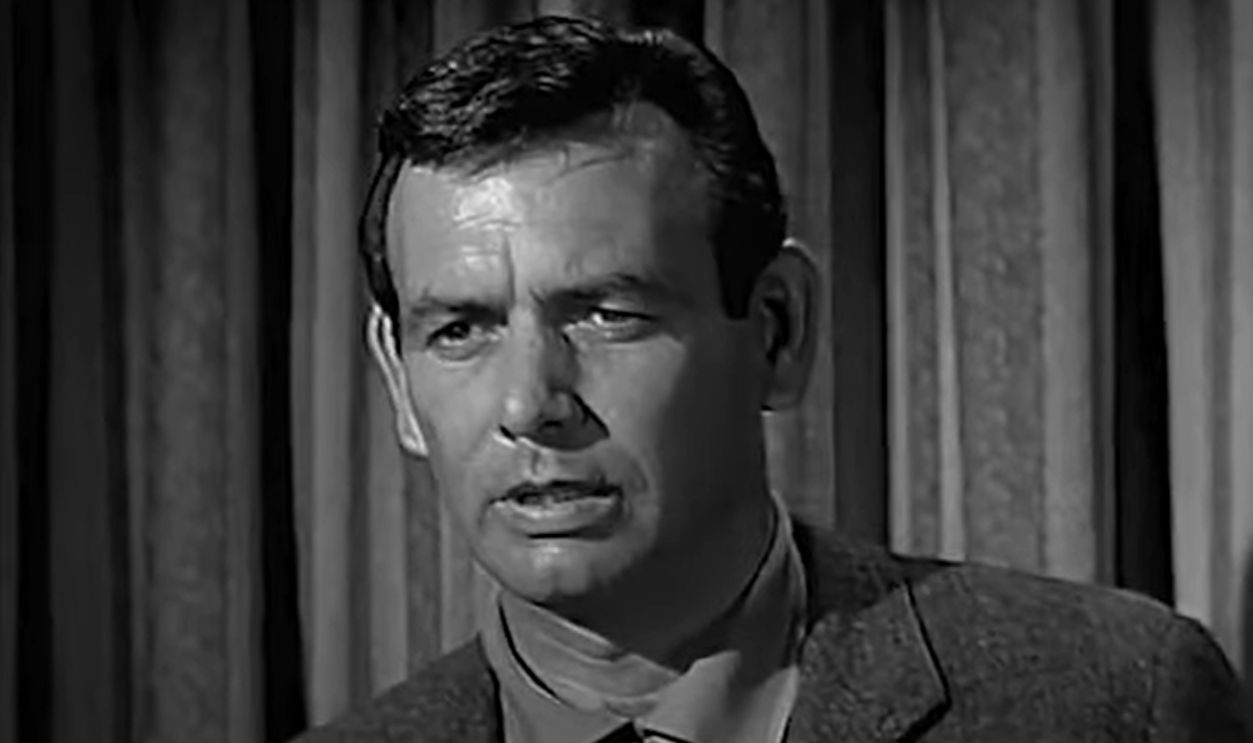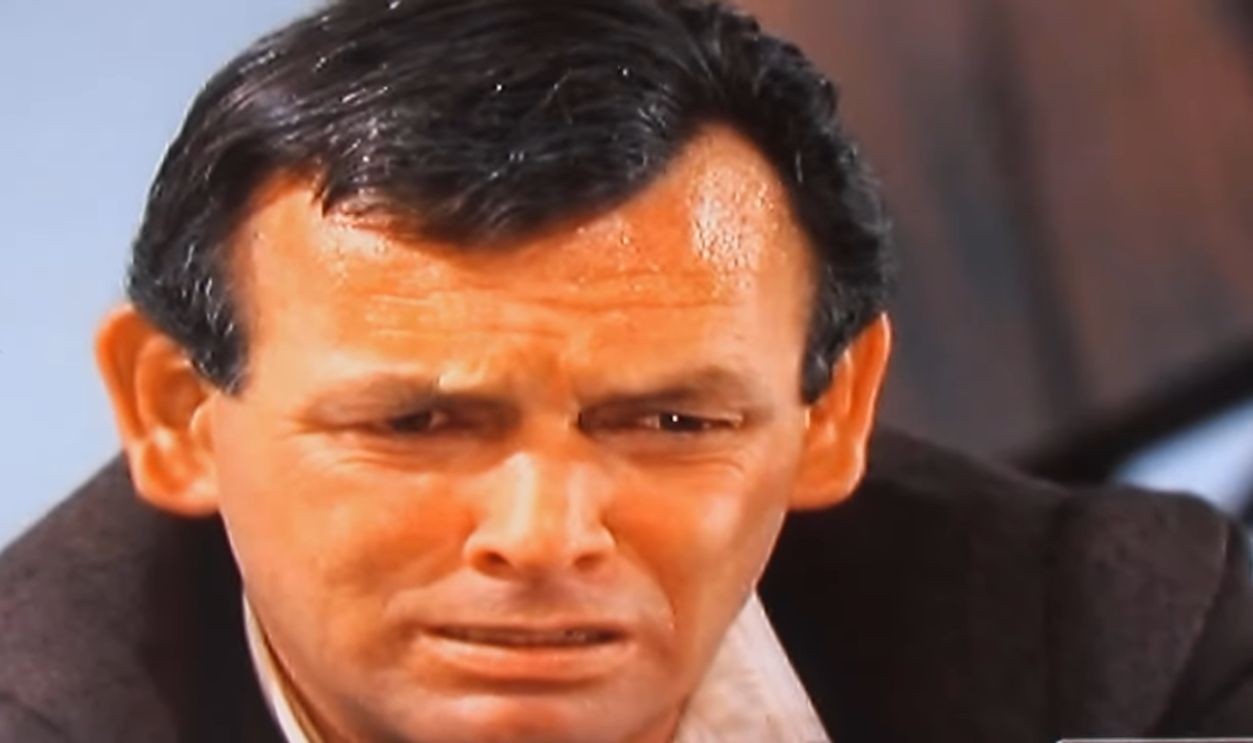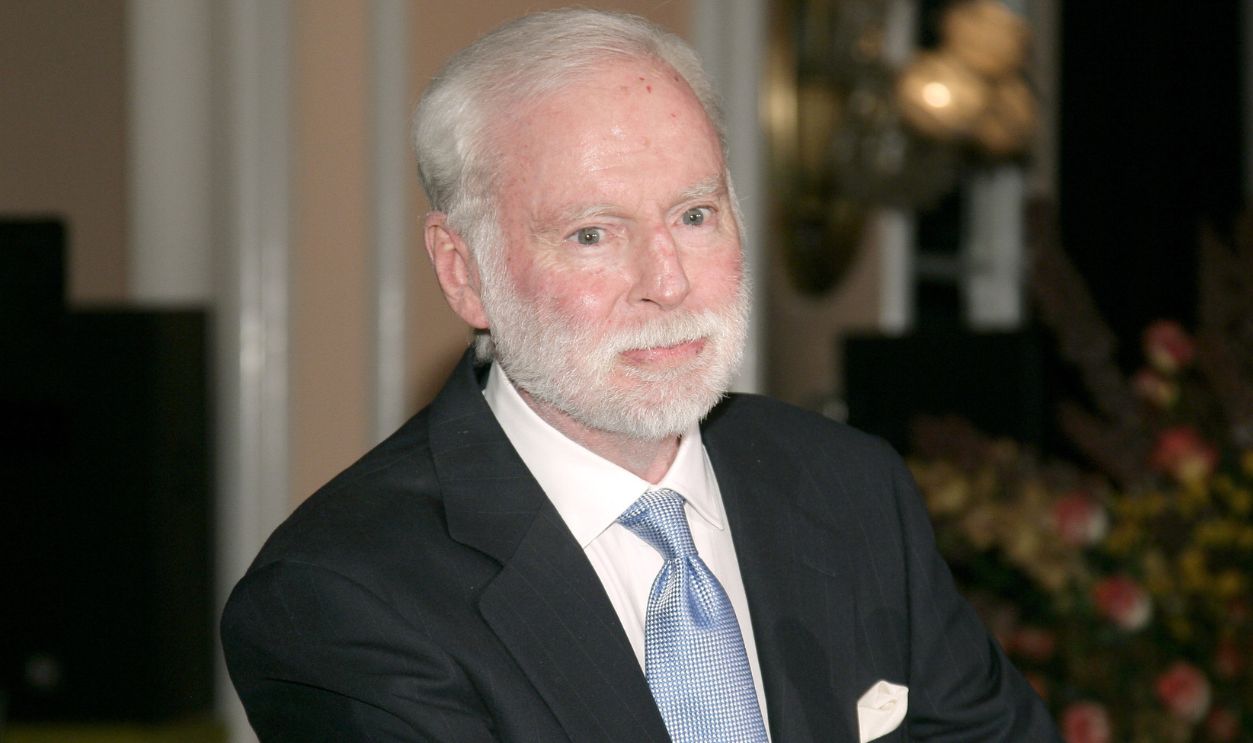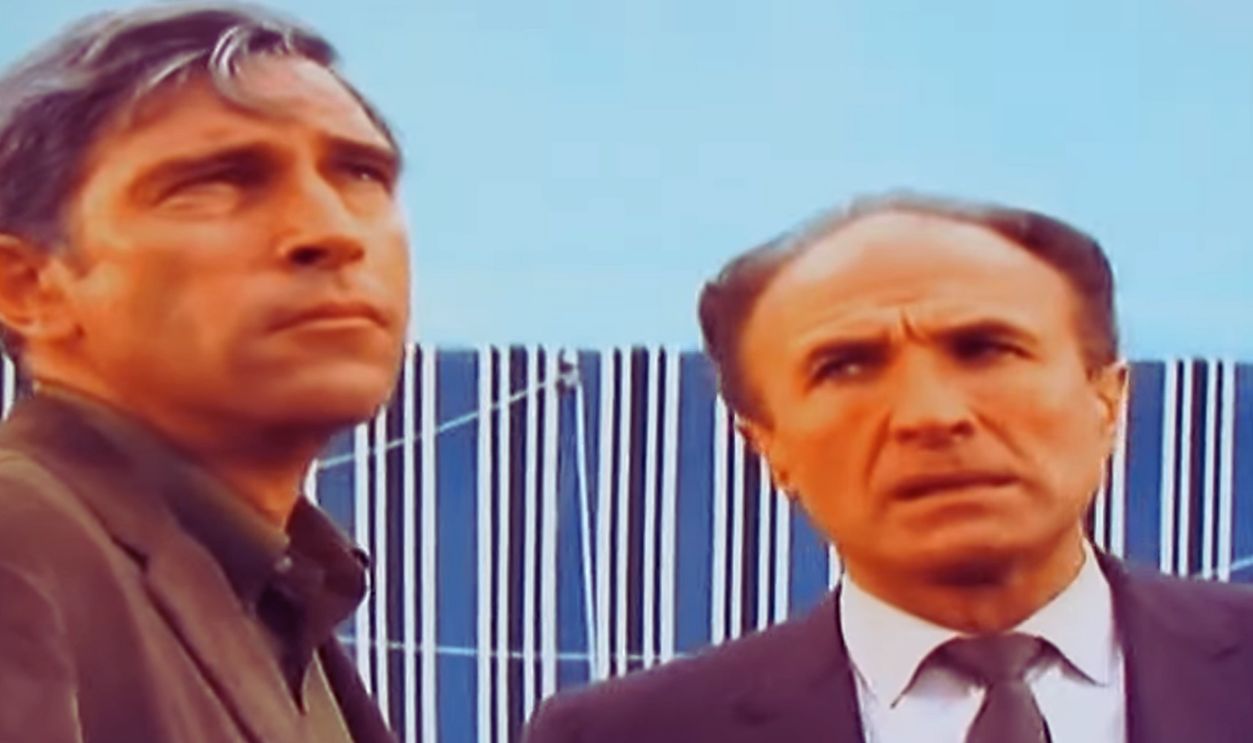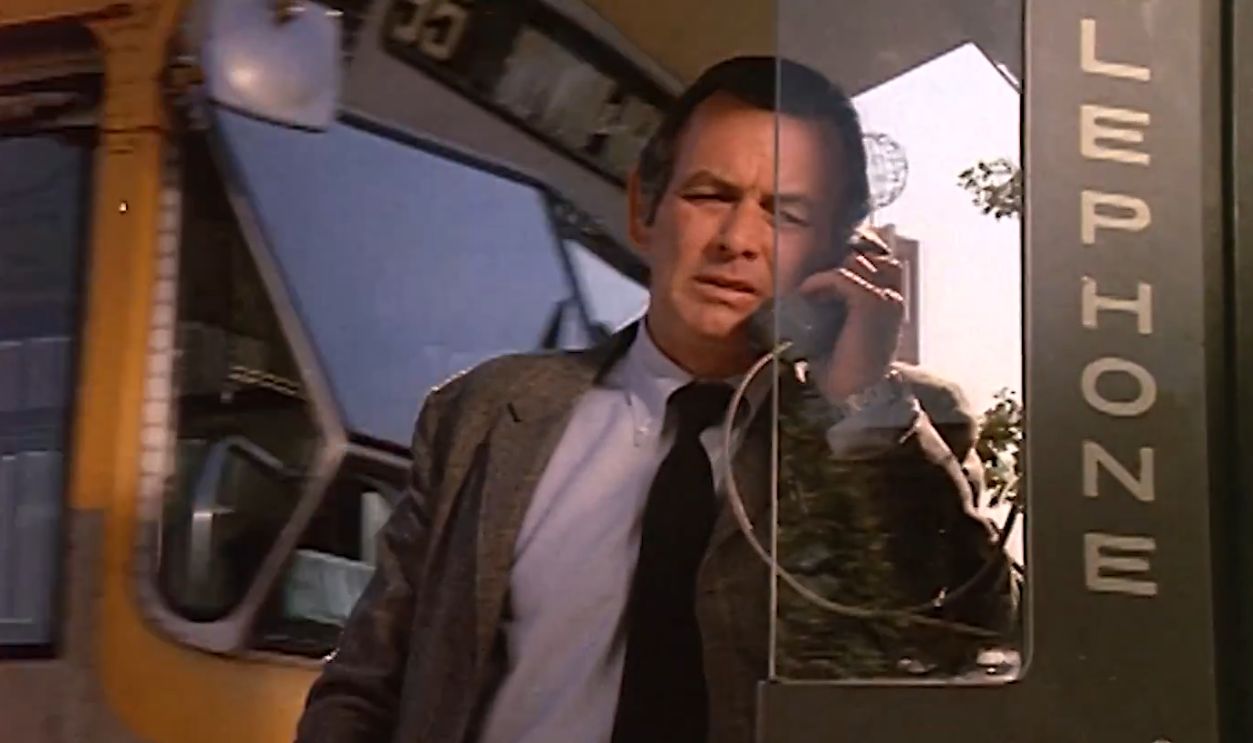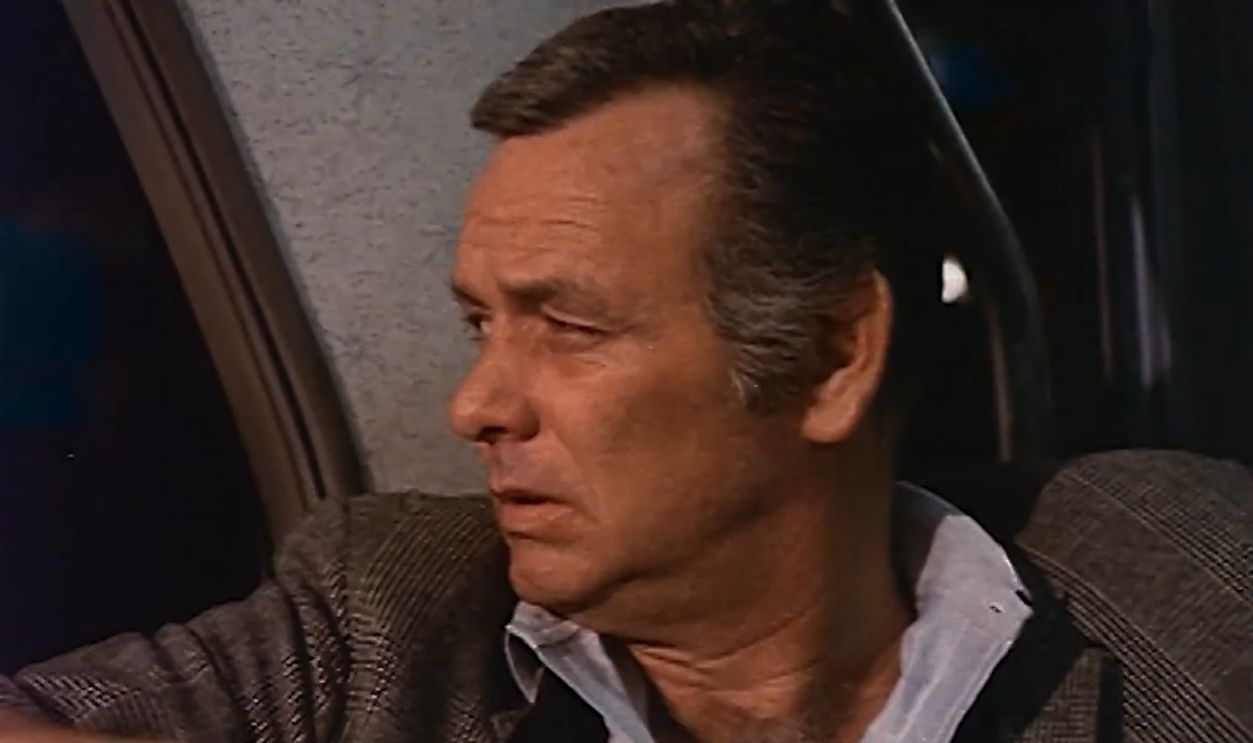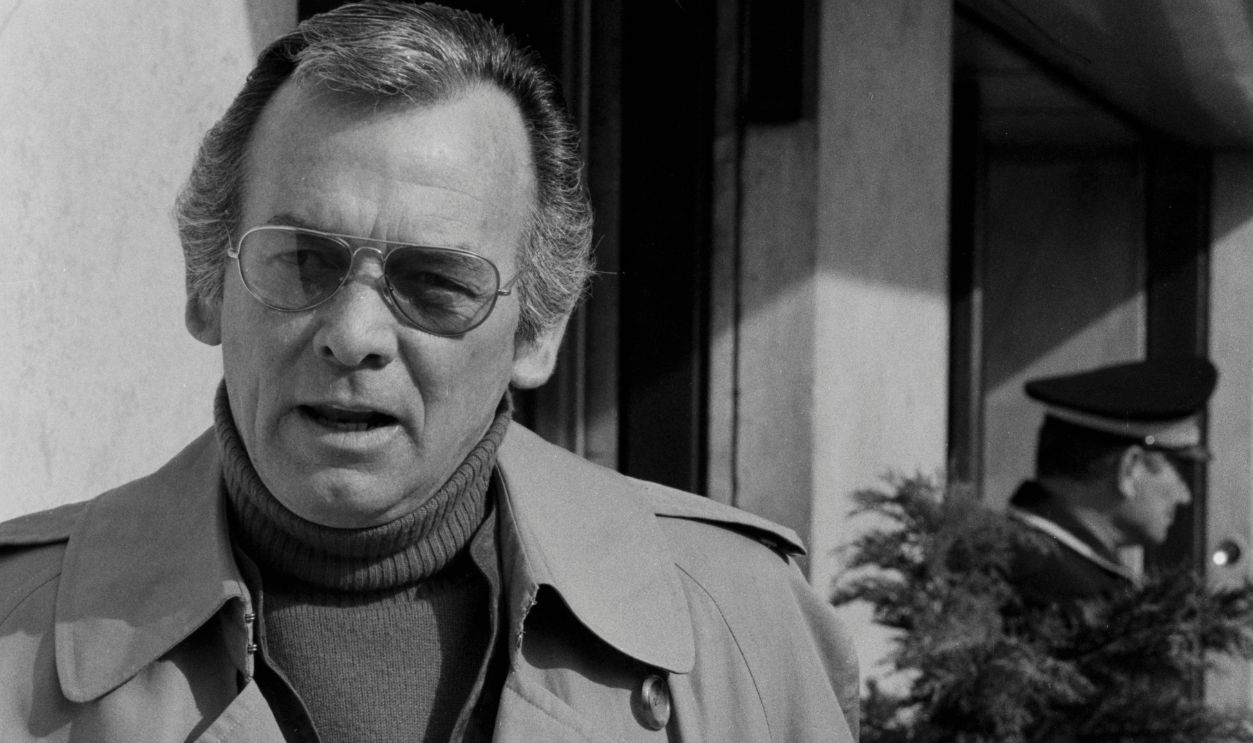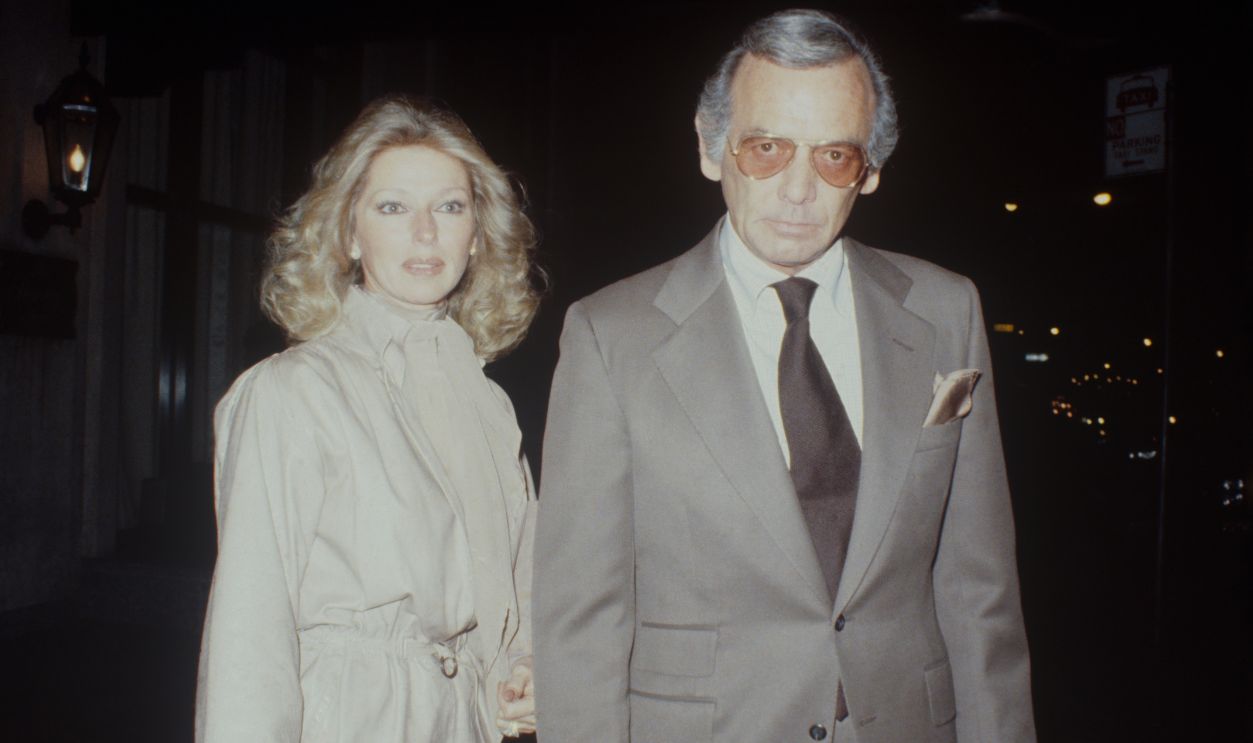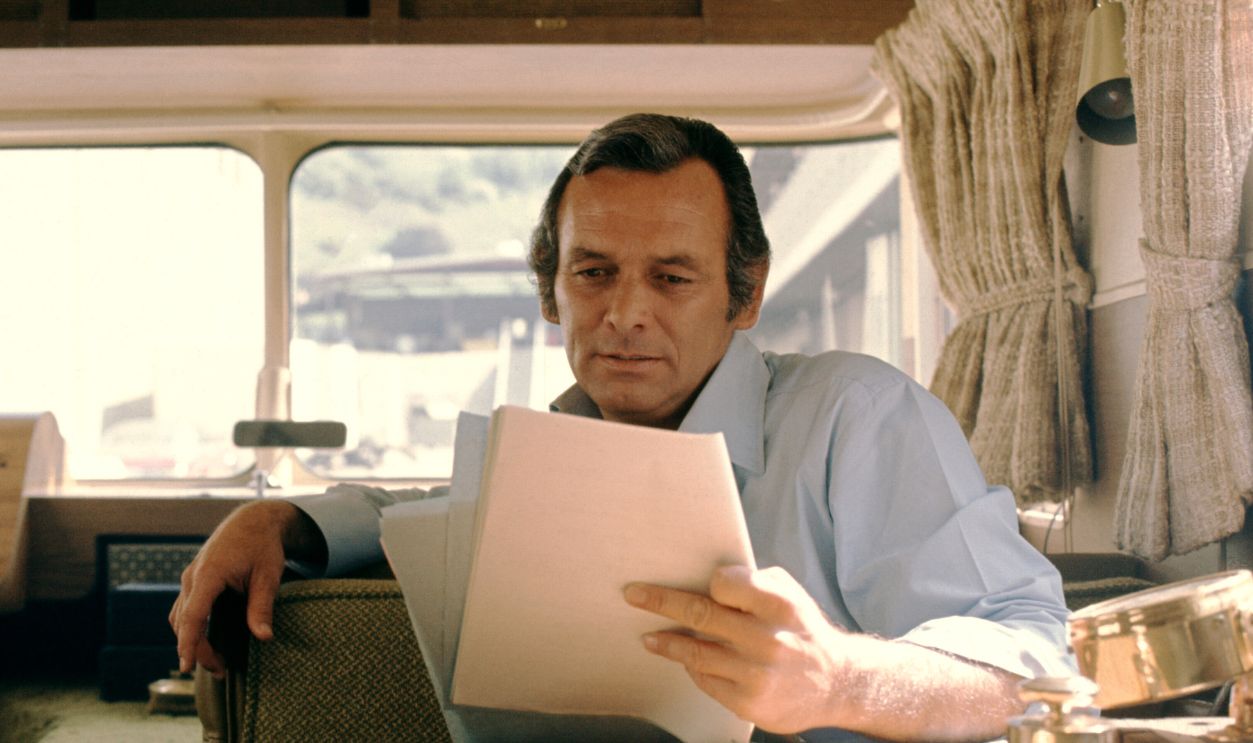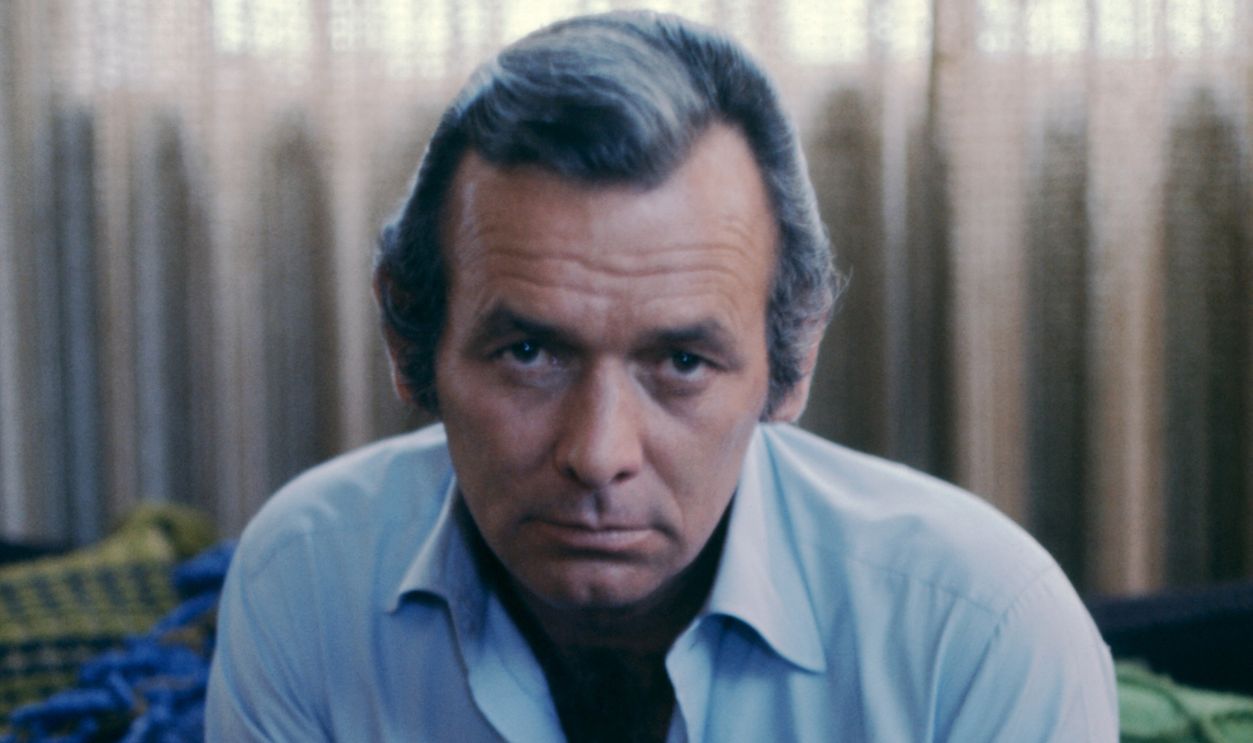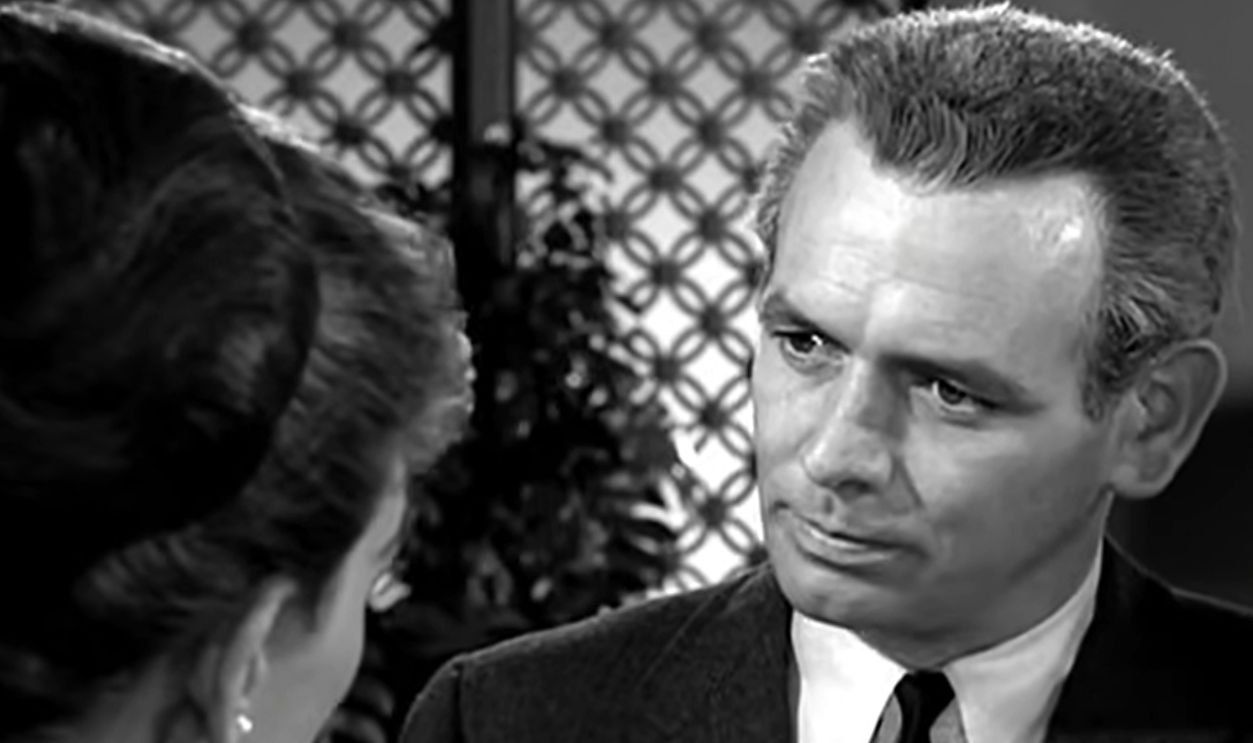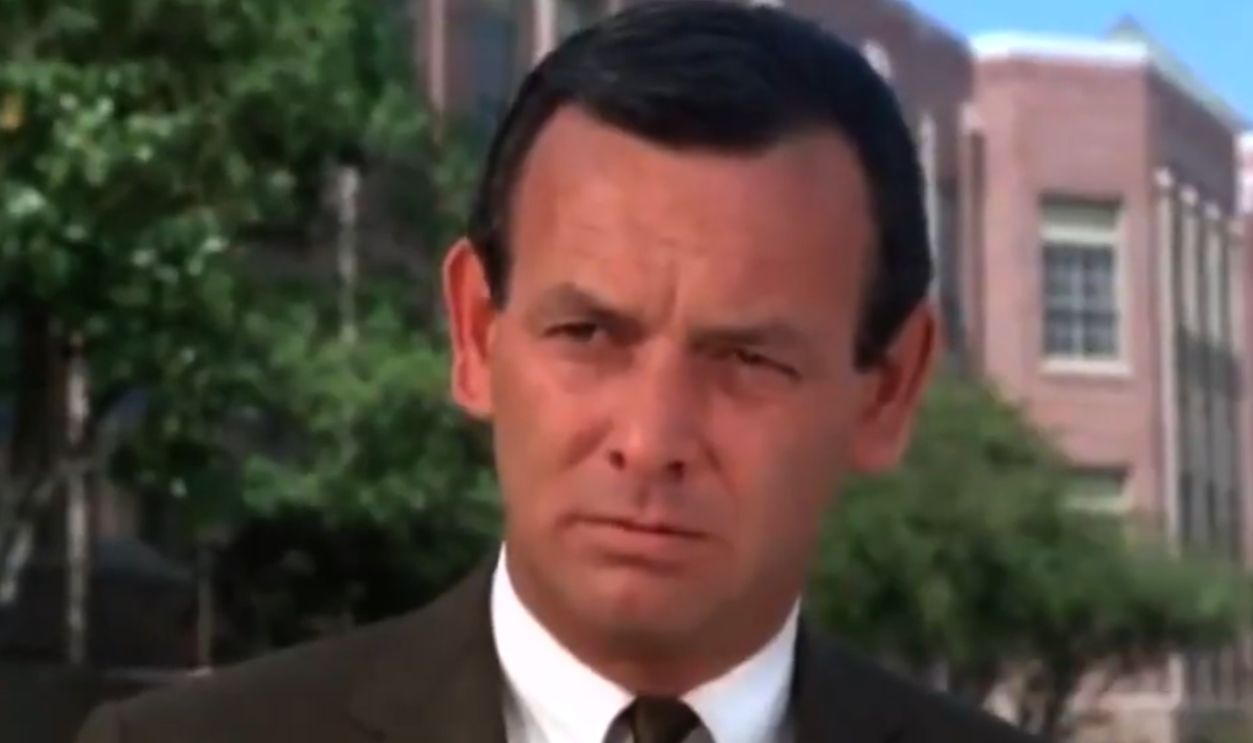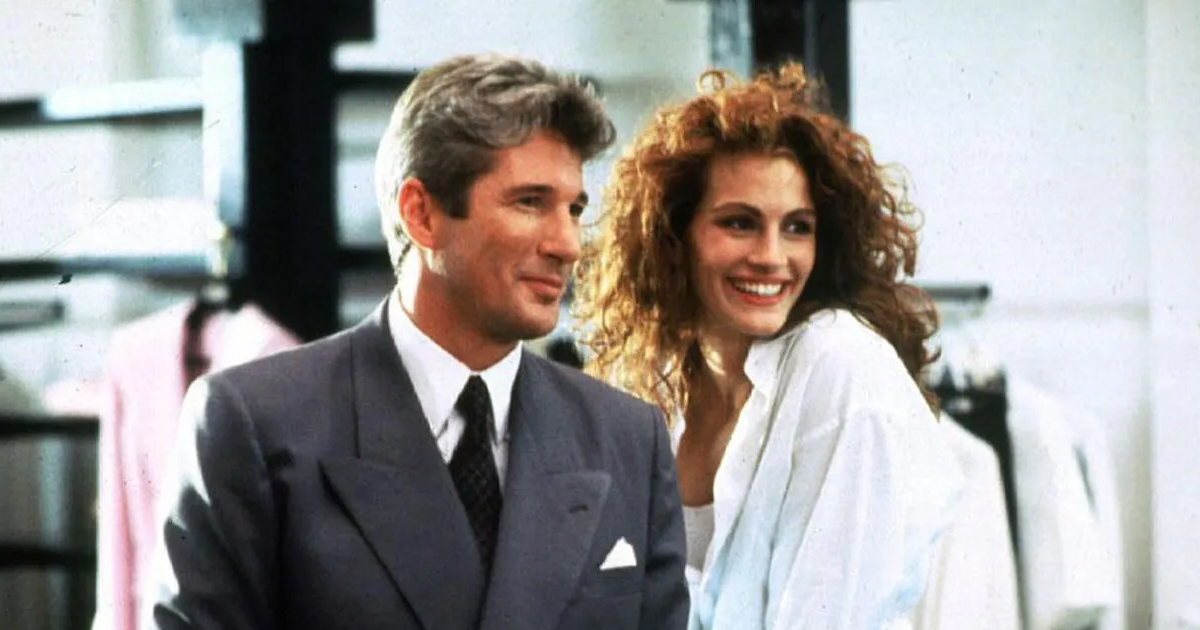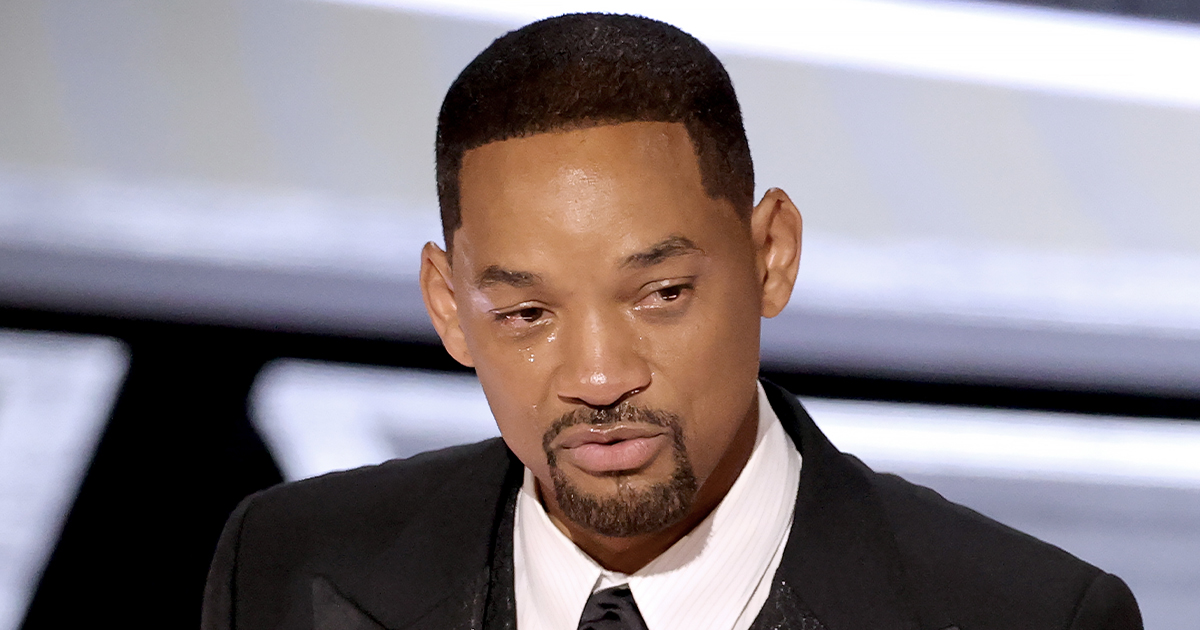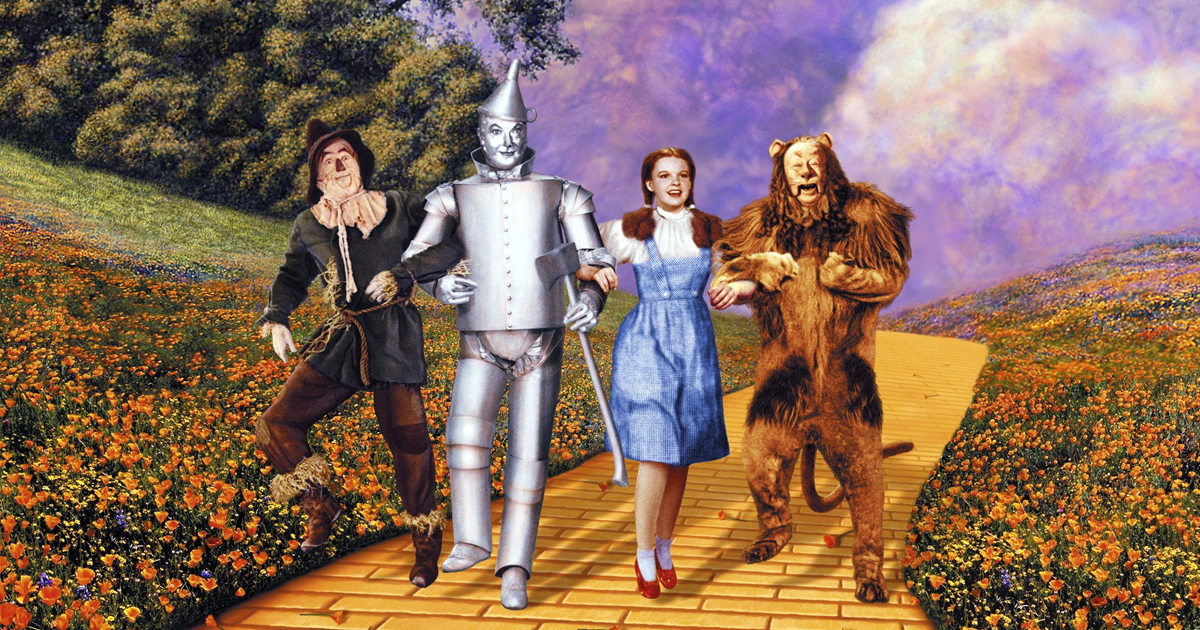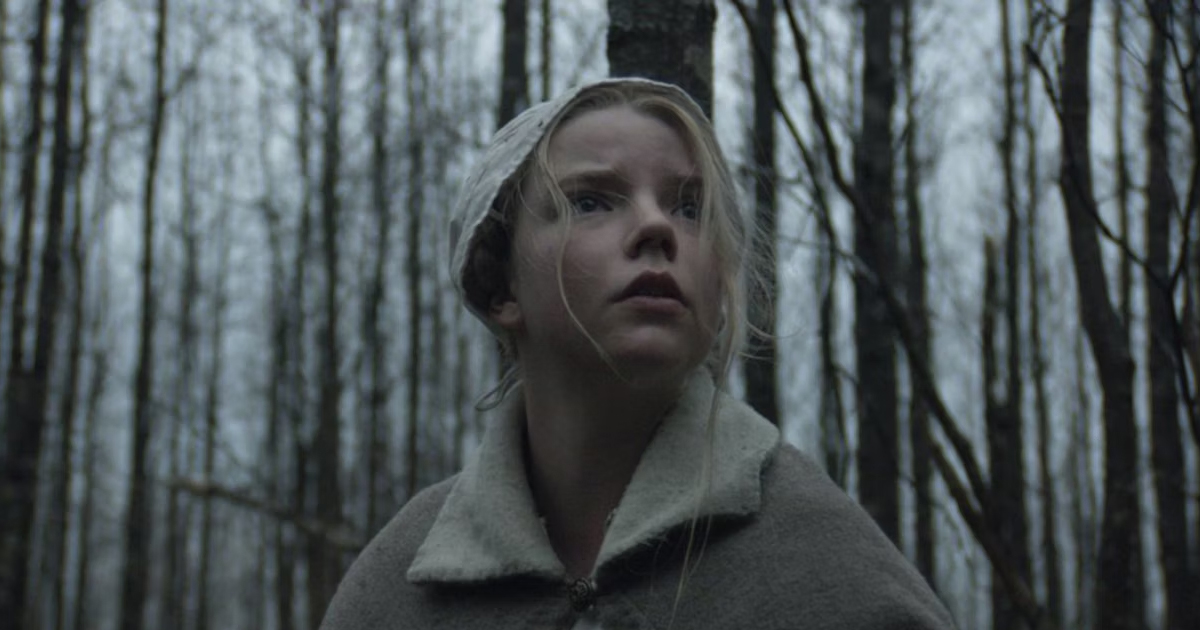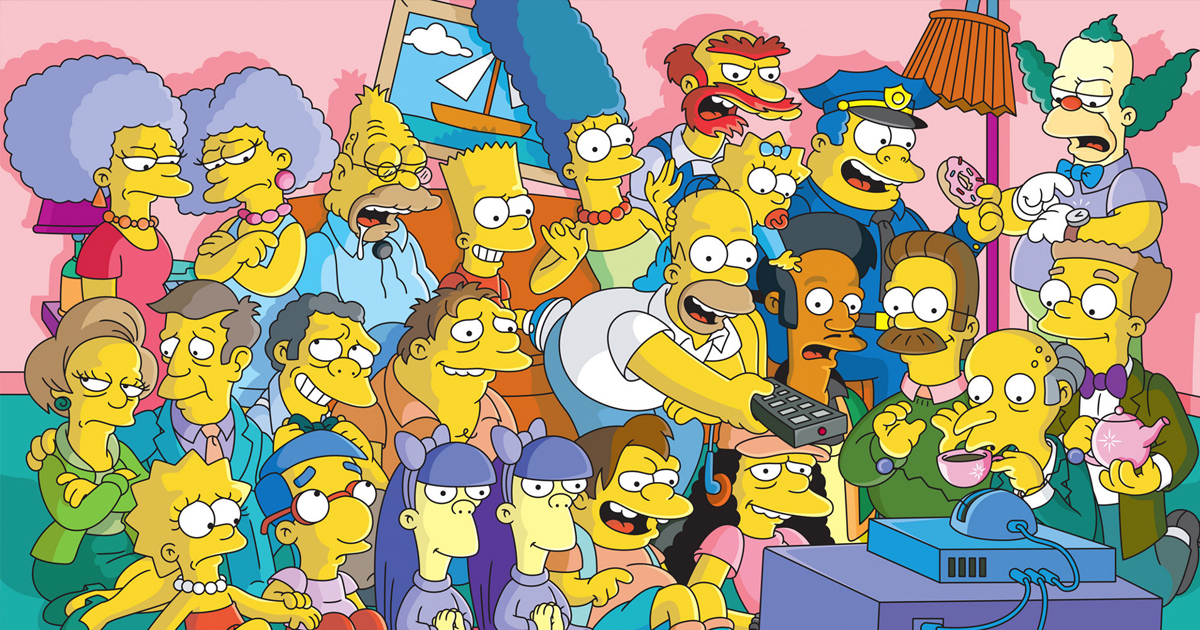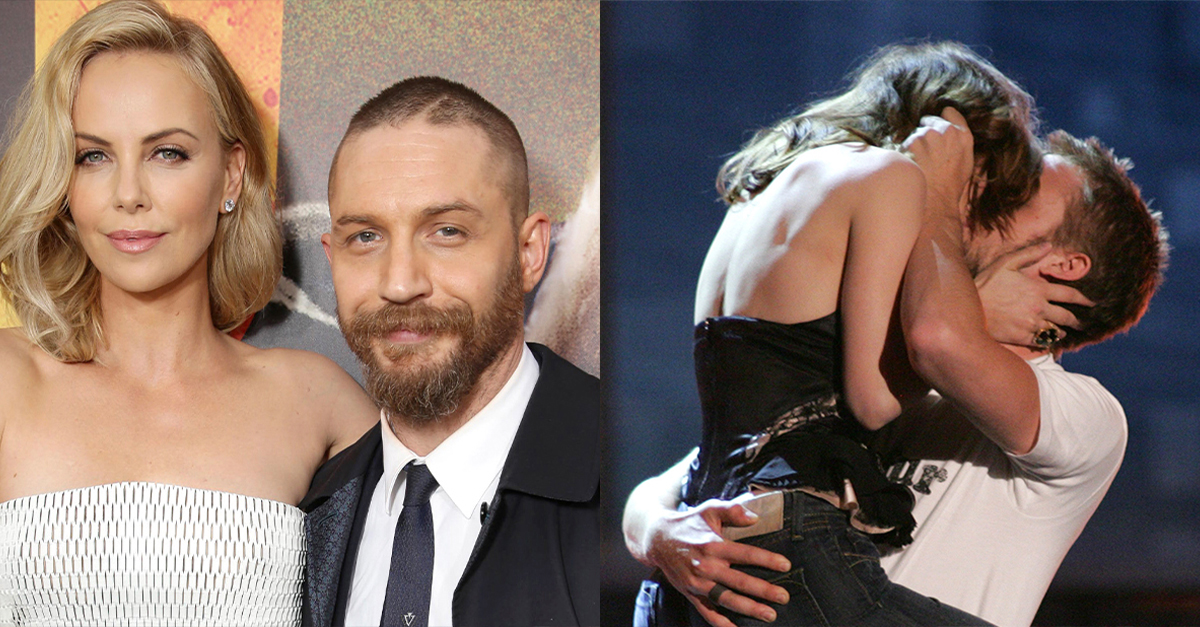He Was A Small-Screen Legend
David Janssen, born David Meyer in 1931, rose from supporting film roles to 60s TV stardom. His portrayal of Dr Richard Kimble in The Fugitive cemented his fame. From early Hollywood parts to gritty TV dramas, he rode changing fortunes in an acting career and life that was ultimately cut short far too soon.
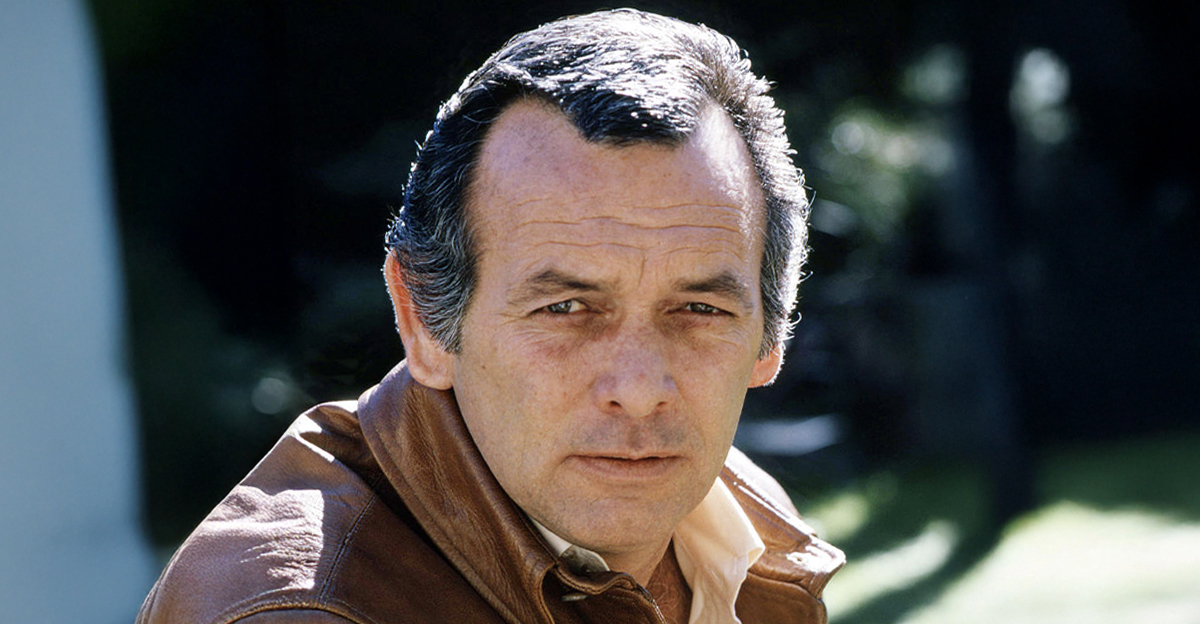
He Didn’t Waste Time Getting Started
Janssen’s early career featured small roles in movies through the 40s and 50s. As a teenager and young man, he showed a strong screen presence and versatility, shifting easily between film and television. These formative parts laid the groundwork for his later breakthrough, but he had a strong family influence that was already fuelling his artistic drive.
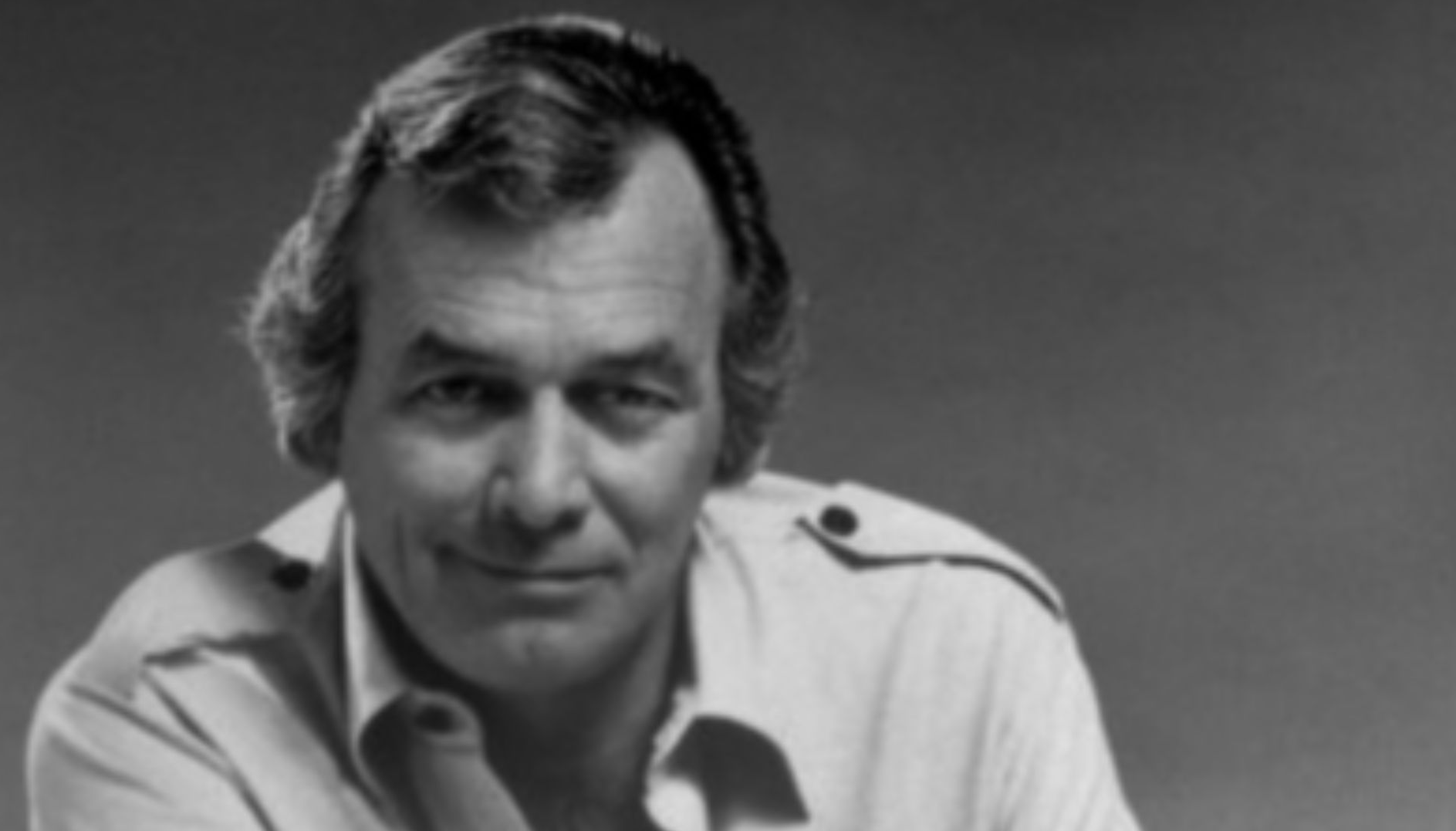 ABC Television, Wikimedia Commons
ABC Television, Wikimedia Commons
His Mother Was A Performer
Janssen’s mother, Berniece, was once a performer in the famous Ziegfeld Follies back in the 30s. Growing up with a parent connected to show business helped David gain a knack for performance and some understanding of its challenges. Her career helped inspired his pursuit of acting and a lifelong search for roles that balanced style with substance, like the detective show that was his first hit.
He Found A Diamond
Before The Fugitive, Janssen starred in Richard Diamond, Private Detective (1957–60) as the clever and witty title character. The series brought him in front of audiences weekly and showed his charm and intensity on TV. Though he now had a bigger profile, he craved new challenges on the big screen.
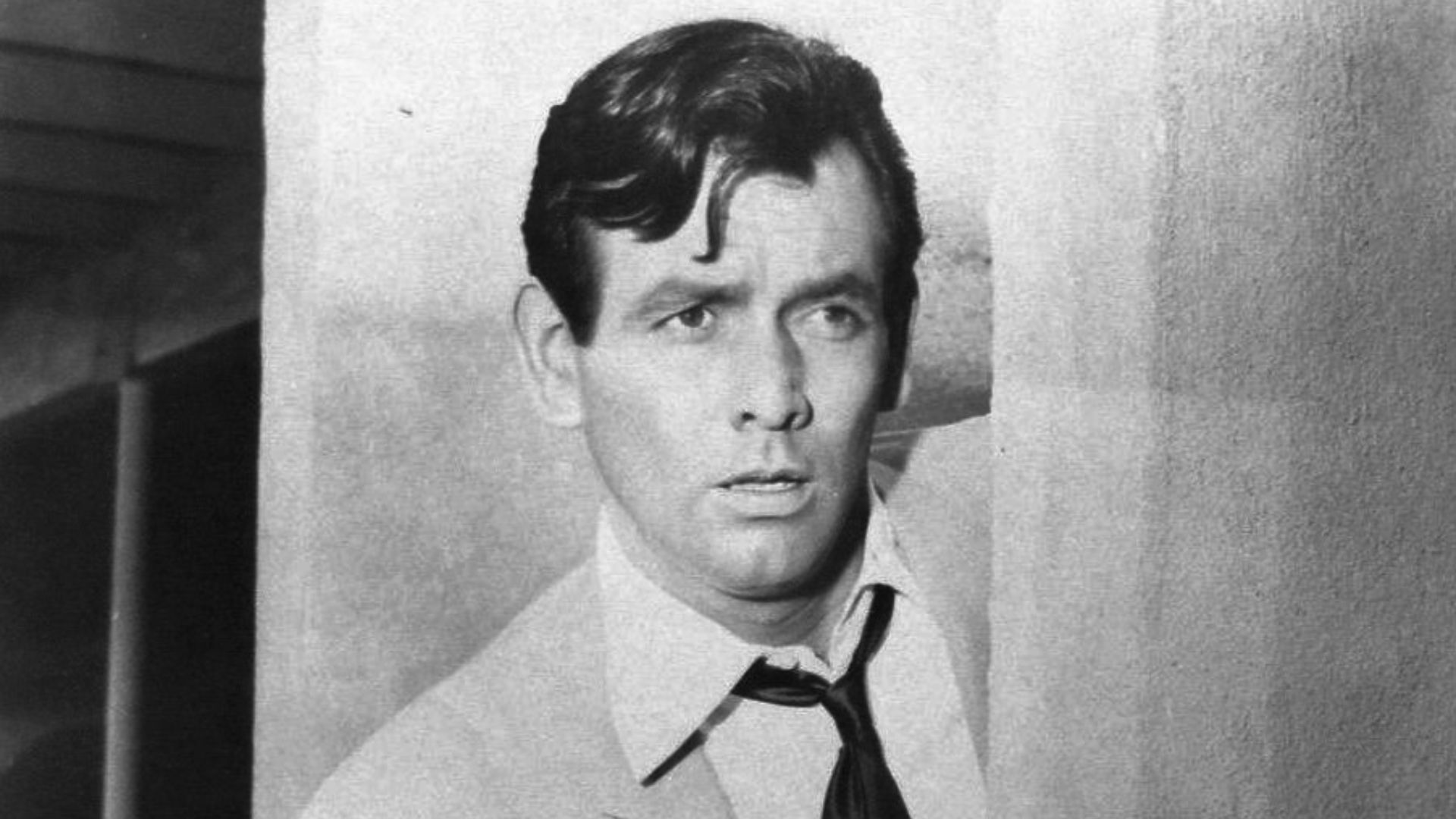 NBC Television, Wikimedia Commons
NBC Television, Wikimedia Commons
He Found Film Work
After Richard Diamond, Janssen got back into Hollywood films, including thrillers and suspense dramas. He put in solid performances, but the roles didn’t replicate his previous TV visibility. Still, Janssen was growing his range and ability to carry strong dramatic scenes. He kept his momentum going by doing TV guest spots.
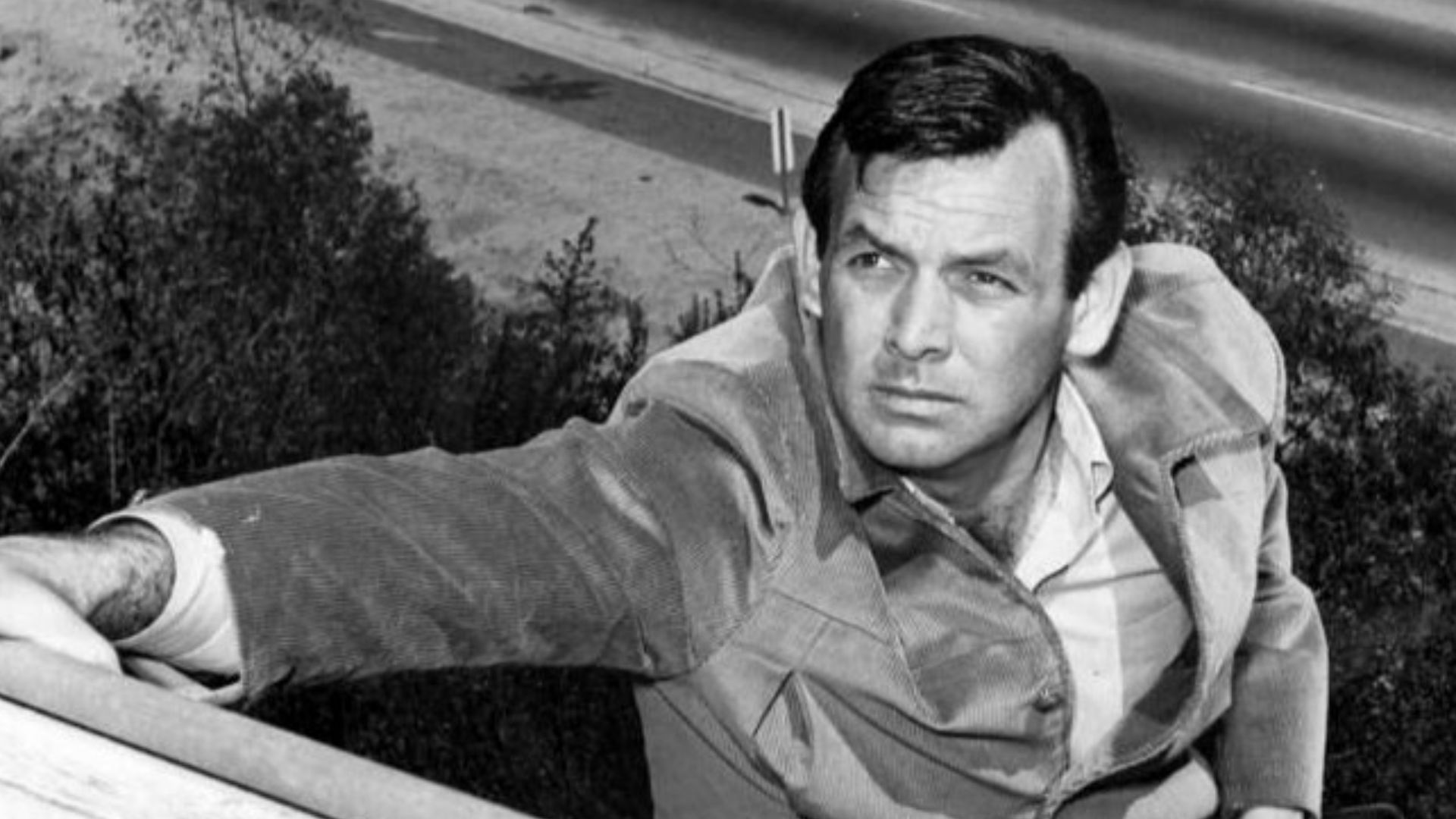 ABC Television, Wikimedia Commons
ABC Television, Wikimedia Commons
He Was A Frequent Guest Star
Janssen’s 60s career featured many different TV movies and guest appearances in which he portrayed everything from private investigators to tough leads in stand-alone dramas. These roles kept his name circulating through the industry and in front of audiences. Then he got a new role that changed everything.
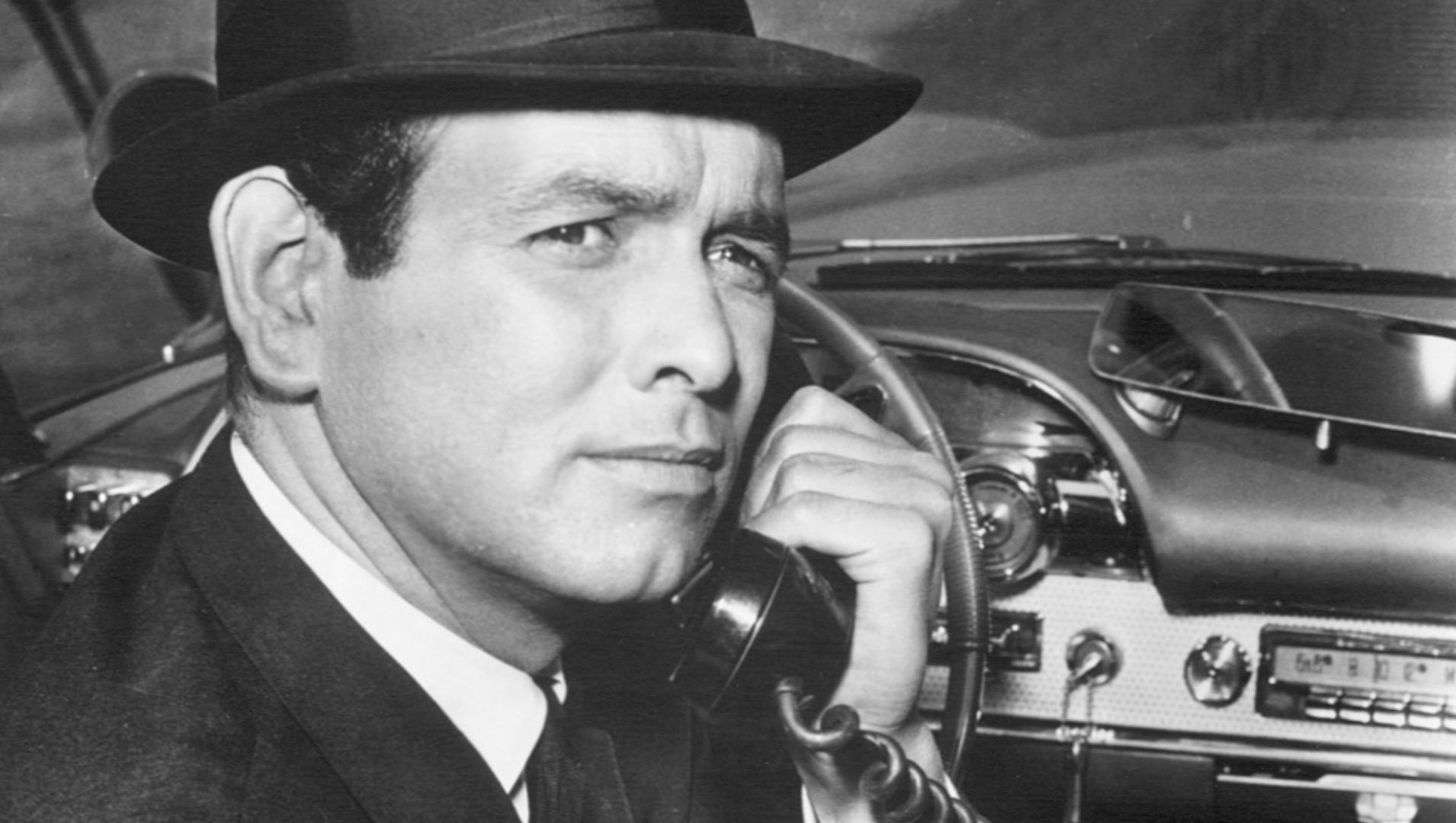 Screen Gems, Wikimedia Commons
Screen Gems, Wikimedia Commons
He Made A Breakthrough
In The Fugitive (1963–1967), Janssen achieved a career breakthrough as Dr Richard Kimble, a man perpetually on the run for a crime he didn’t commit. The show’s tension and his layered, expressive performance made him a 60s TV icon. The Janssen’s acting and fan appeal would set the series apart from anything else on TV.
He Had A Gritty Appeal
The series stood out for its gritty noir sensibility and emotional depth. Janssen’s brooding low-key performance connected with viewers on a personal level, through their sense of struggle against injustice. But by 1967 the show’s ratings were already slipping, forcing a crucial decision at ABC.
His Ratings Were On The Downward Slope
Although Nielsen ratings declined over its four-season run, the final season proved how popular Janssen’s character had become. The loyalty of the show’s most hardcore fans didn’t change the network’s decision to end the show, but it did lead the network to debate how best to end the story.
He Was Able To Wrap Things Up Properly
Leonard Goldberg, an ABC executive, insisted that The Fugitive get treated to a proper series finale to wrap up the story properly. Originally, the network had wanted to simply cancel the show outright with no resolution. Goldberg’s forceful intervention led to a groundbreaking two-hour final episode, whose influence extended well beyond its broadcast.
He Helped Make TV History
The culminating two-part episode, "The Judgment", aired August 29, 1967, achieving an unprecedented 72 percent viewer share. It proved definitively that audiences wanted narrative closure, and it set a precedent for future TV storytelling. This was all great, but Janssen was now at a crossroads in his career.
He Was No Longer The Fugitive
Janssen didn’t sit back and rest on the success of The Fugitive. He was looking for under-explored television terrain, including lead roles in TV films and new series. He was most of all dead set on avoiding being typecast. With this in mind, he jumped on board a new film that touched on the growing conflict in Southeast Asia.
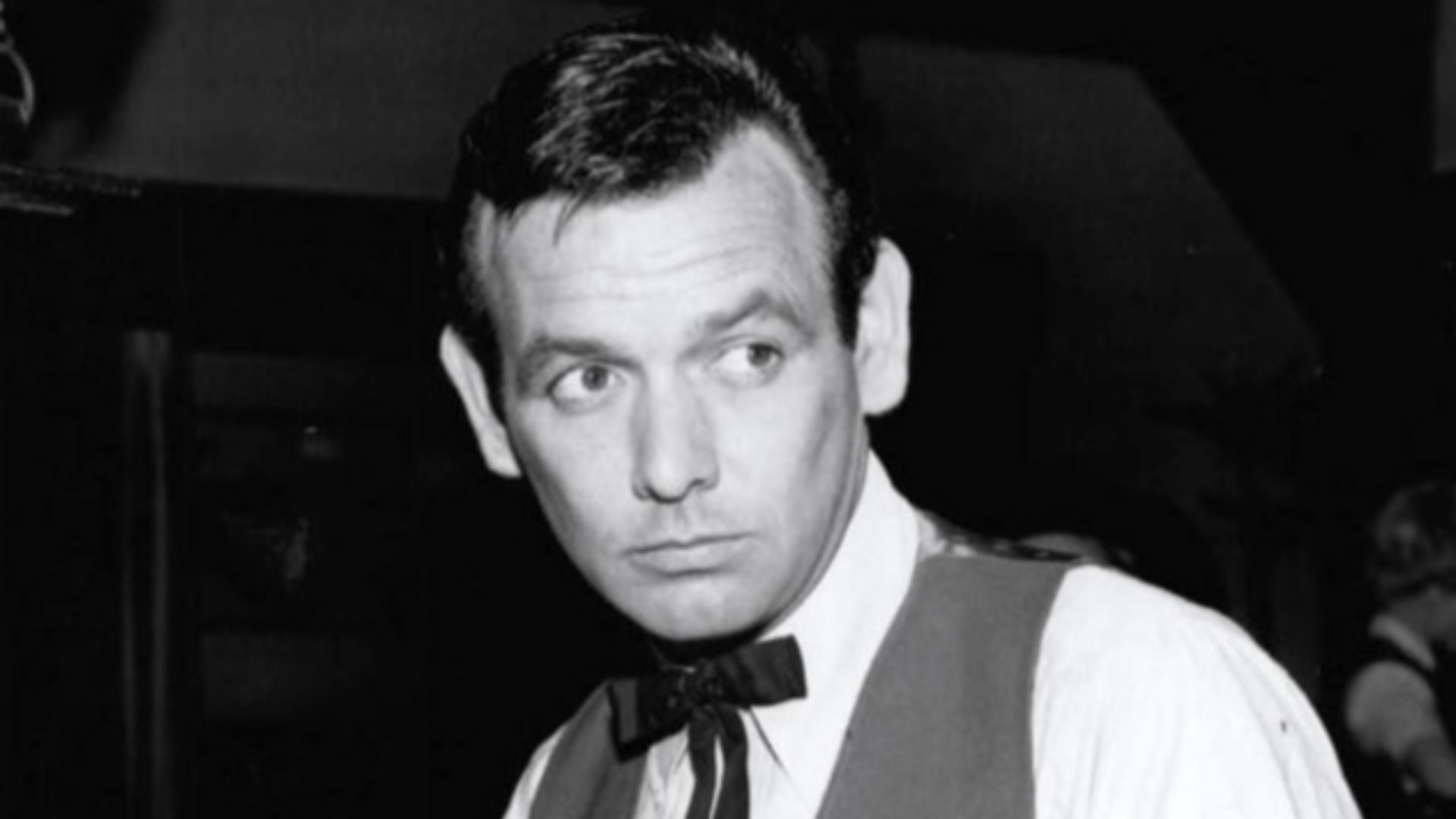 ABC Television, Wikimedia Commons
ABC Television, Wikimedia Commons
He Squared Off Against The Duke
In 1968, Janssen starred opposite John Wayne in The Green Berets, playing war correspondent George Beckworth. His skepticism of the war in Vietnam balanced Wayne’s patriotic colonel, adding some nuance to a controversial film. The role showed Janssen the equal of cinema’s big guns, but he continued to pursue opportunities in TV. After the success of the 60s, he had a tough act to follow.
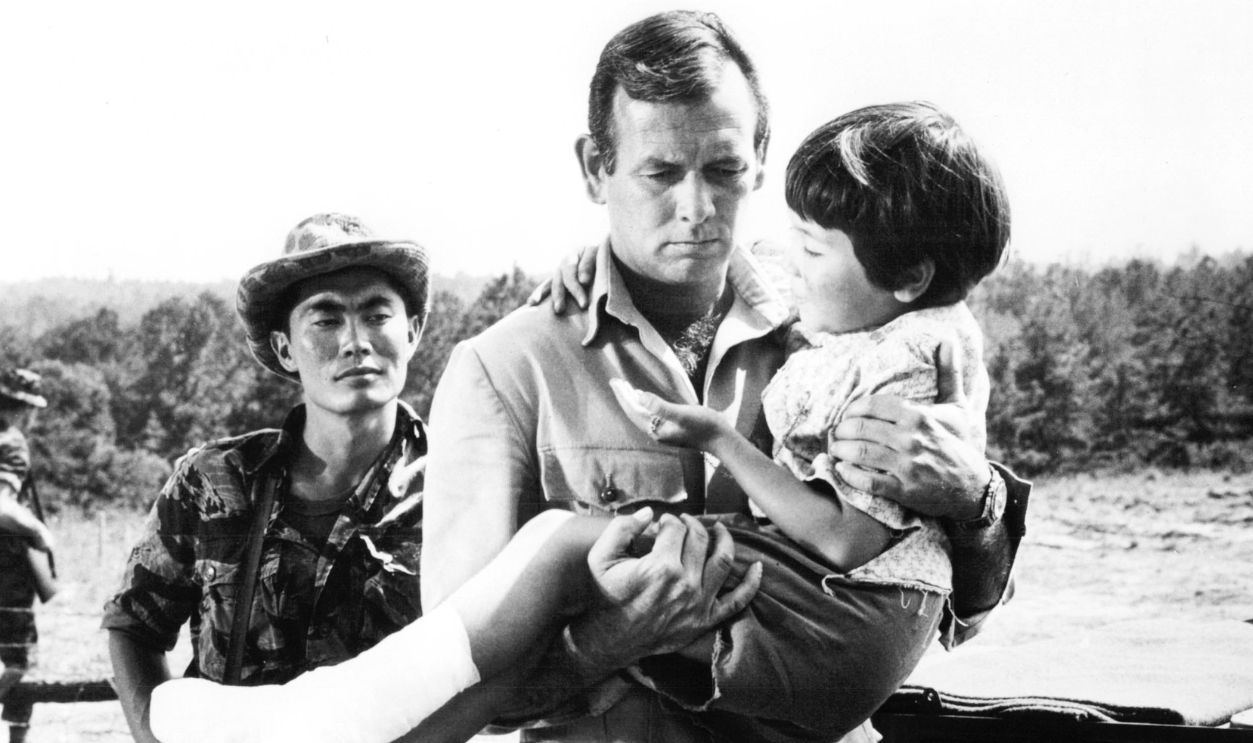 Silver Screen Collection, Getty Images
Silver Screen Collection, Getty Images
O'Hara And Harry O
In O’Hara: U.S. Treasury, Janssen plays the title character, Treasury Agent Jim O'Hara. The series (1971–72) failed to last more than a season. In the series Harry O (1974–76), Janssen played Harry Orwell, a grizzled private eye in Los Angeles. Critics praised the role for its depth and maturity, but in spite of the positive feedback, network politics ended the show. All this pushed Janssen to seriously consider his future.
He Vowed He Would Never Go Back
After Harry O ended, Janssen swore he would never do another regular TV series. Disillusioned, he turned to miniseries and high-profile TV movies in a quest for greater creative satisfaction. These projects offered rich characters, while Janssen continued to appear in notable feature films.
He Kept Himself Busy
Janssen followed through on the goals he'd set for himself after the cancellation of Harry O, and he got several roles in well-regarded miniseries and TV films, where he had the chance to play characters that reflected his growth as an actor. As the 70s rolled on, these parts underscored his artistry, even if they lacked some of the fanfare of his earlier roles. Janssen was doing okay, but there were some indications that all was not well.
He Was Showing His Age And Then Some
Off screen, Janssen’s two marriages, rumored romances, and social life attracted the normal amount of Hollywood gossip. All in all, he managed his personal affairs better than most actors of his profile, but it was his daily habits that were beginning to take the greater toll on him.
He Was A Heavy Smoker
As a known chain smoker who reportedly went through up to four packs a day, Janssen’s tobacco use was widely discussed. Combined with his grueling work schedules, it left him visibly aged by his mid-forties. His friends worried about his appearance, concerns that would later be confirmed by medical findings.
He Was In Far Rougher Shape Than Anyone Knew
Autopsy reports later revealed that Janssen had major arterial blockages likely caused by his decades of heavy smoking. Despite his vigorous and dynamic on-screen persona, his body and face was starting to show the wear of overwork and tobacco. Observers regretfully noted he looked decades older than he really was, a stark precursor to his fate.
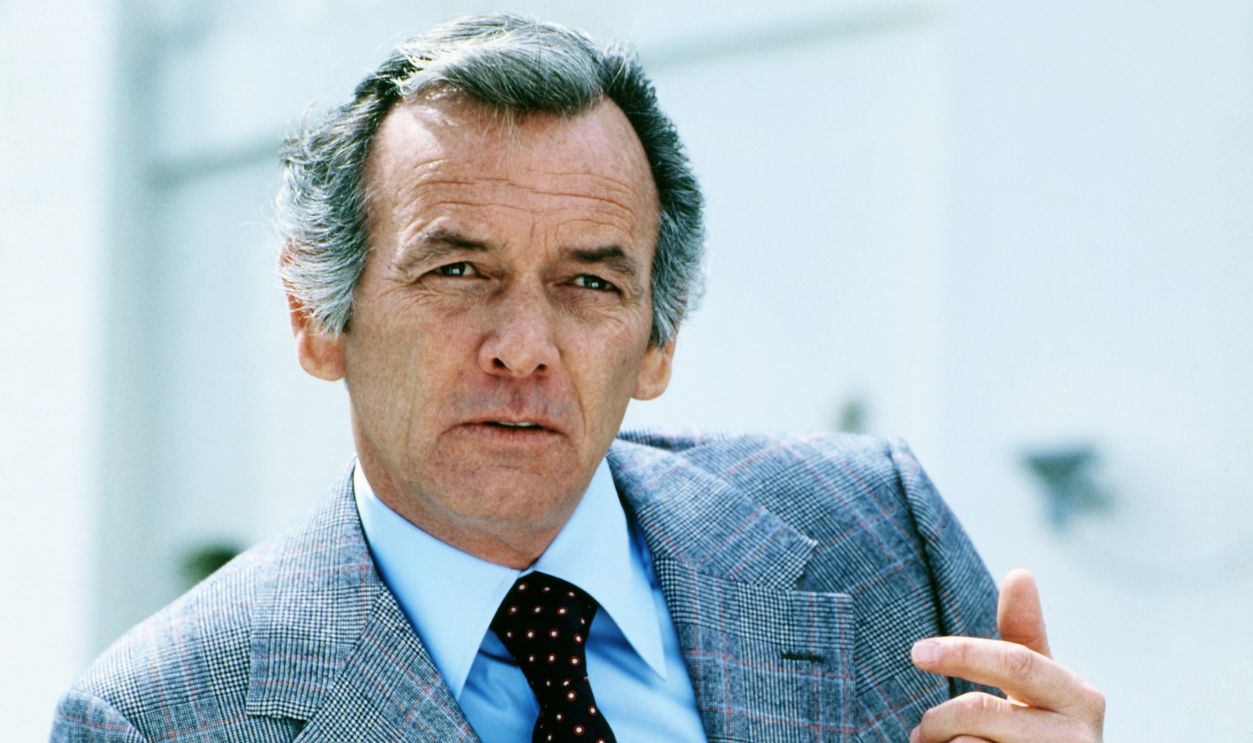 Silver Screen Collection, Getty Images
Silver Screen Collection, Getty Images
Smoking’s Role In His Tragic Death
On February 13, 1980, Janssen suffered a fatal heart attack at forty-eight. His grueling lifestyle and heavy smoking almost certainly contributed to cardiovascular damage. His passing sent shockwaves across Hollywood at the loss of such a promising and popular talent, and invited broader reflection on the hazards of tobacco that we now take far more for granted.
He Had A Great TV Legacy
Despite his early passing, Janssen left a memorable impression on TV viewers of the 60s generation. The Fugitive is still a cultural cornerstone from that time. Janssen’s portrayal of Richard Kimble influenced generations of serialized dramas, and generated a movie remake in the 90s that starred Harrison Ford and Tommy Lee Jones. But The Fugitive was only a part of the David Janssen story.
He Left Us All Wondering
Janssen’s career arc from the modest film roles of the 40s and 50s, to his mainstream 60s stardom, to the disillusionment and persistence of the 70s are a classic saga of the volatile fortunes of Hollywood. Janssen’s workaholic perseverance reflected his commitment to improving his craft as an actor. His premature passing left his fans to wonder what might have been. But the expressiveness and empathy of Janssen's performance in The Fugitive still smolders as the heart and soul of one of the best and most cohesive TV series ever created.
You May Also Like:
Breakout Roles That Changed Everything
21 Actors Who Were Absolutely Born To Play A Specific Character

